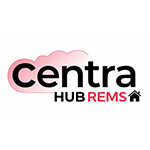Description

CentraHub REMS

Pinga
Comprehensive Overview: CentraHub REMS vs Pinga
CentraHub REMS and Pinga appear to be two different products, possibly serving different markets and purposes. Here's a comprehensive overview based on what each is generally known for:
CentraHub REMS
a) Primary Functions and Target Markets
- Primary Functions: CentraHub REMS (Real Estate Management System) is a comprehensive software tool designed to help real estate companies manage their operations efficiently. Key functionalities often include lease and property management, sales and customer management, financial and accounting operations, and reporting and analytics.
- Target Markets: The target market for CentraHub REMS typically includes real estate firms, property management companies, real estate developers, and agents. It often caters to both commercial and residential real estate segments.
b) Market Share and User Base
- Market Share: While specific numbers can be difficult to ascertain, CentraHub REMS is part of CentraHub's suite of business software solutions. Its market share would be influenced by factors such as the overall demand for real estate software, competition, and the adoption rate within the targeted industries.
- User Base: The user base primarily consists of small to medium-sized businesses in the real estate sector, although larger enterprises might also use it if their needs align with the software's capabilities.
c) Key Differentiating Factors
- Comprehensive Solutions: CentraHub REMS provides an end-to-end real estate management solution, integrating various functions essential for real estate operations.
- Customization: It offers customization options to tailor the software to specific needs and workflows of different real estate businesses.
- Integration Capabilities: The software can typically integrate with other systems, such as CRM and ERP, to provide a seamless business process.
Pinga
a) Primary Functions and Target Markets
- Primary Functions: The name "Pinga" could refer to different products or services depending on the context, but it may not be specifically recognized as a real estate management tool like CentraHub REMS. Pinga could be related to on-demand service platforms, logistics, or other technology solutions depending on the context.
- Target Markets: Depending on its function, Pinga's target market might vary. It might target consumers, service providers, or businesses needing specific logistic or service-oriented solutions.
b) Market Share and User Base
- Market Share/User Base: Without specific context on what Pinga refers to, it is difficult to determine market share and user base. Its presence in the market would depend on its specific sector, competition, and user demand.
c) Key Differentiating Factors
- Purpose: Without specific information, Pinga's differentiating factors would primarily depend on its intended purpose, such as its ease of use, innovative features, or service efficiency.
- Technology Adoption: If it's a tech-oriented solution, its differentiating factors might be related to the adoption of new technology or unique market approaches.
Overall Comparison
- Focus: CentraHub REMS is a focused solution for real estate management, providing specific functionalities tailored to that industry, whereas Pinga's scope and functionalities might vary considerably based on its intended use.
- Market Presence: Without specific information on Pinga, CentraHub REMS is likely more niche-focused within real estate, while Pinga might have a broader or different scope.
In summary, CentraHub REMS specializes in real estate management, targeting market-specific needs, while Pinga's role, features, and target markets would depend on its specific context or industry focus.
Contact Info

Year founded :
Not Available
Not Available
Not Available
Not Available
Not Available

Year founded :
Not Available
Not Available
Not Available
Not Available
Not Available
Feature Similarity Breakdown: CentraHub REMS, Pinga
To provide a feature similarity breakdown for CentraHub REMS and Pinga, we need to analyze each system across several areas. Below is a detailed examination based on the latest data available:
a) Core Features in Common
-
Property Management:
- Both CentraHub REMS and Pinga offer comprehensive property management solutions, allowing users to handle various aspects of property portfolios, such as listings, tenant management, and lease management.
-
Customer Relationship Management (CRM):
- They provide integrated CRM tools to manage interactions with prospects and clients, track leads, and enhance customer engagement.
-
Financial Management:
- Core financial features typically include rent tracking, invoicing, payment processing, and financial reporting, facilitating smooth financial operations within real estate businesses.
-
Reporting and Analytics:
- Each platform includes reporting capabilities that help users analyze real estate data, monitor performance metrics, and generate customizable reports.
-
Task and Workflow Automation:
- Automation features are designed to streamline business processes, reduce manual tasks, and enhance productivity through automated workflows and alerts.
b) User Interface Comparison
-
CentraHub REMS:
- UI is characterized by a feature-rich design focusing on providing comprehensive tools for robust real estate management. It often incorporates dashboards with a wide range of metrics and visual elements. While powerful, the interface might have a steeper learning curve for new users.
-
Pinga:
- Pinga typically prioritizes user-friendliness and simplicity. Its interface tends to be more intuitive and easier to navigate, focusing on essential features and ease of use for quick onboarding and accessibility.
Overall, Pinga's interface might appeal more to users looking for simplicity and ease of navigation, whereas CentraHub REMS might cater to users who require more extensive functionality and don't mind investing time in learning the system.
c) Unique Features
-
CentraHub REMS:
- Typically offers more advanced customization options. It might have features targeting larger real estate enterprises, such as highly customizable workflow modules, integration with a wide array of third-party applications, and support for complex organizational structures.
-
Pinga:
- Could distinguish itself through more innovative customer engagement tools, such as integrated social media capabilities or more advanced mobile functionality. It might also focus on niche markets with specialized tools for certain types of real estate activities.
These delineations help illustrate how each product may serve different market segments or user preferences based on their feature sets and interface design. It's important for prospective users to evaluate both personal preferences for UI design and the specific features that directly address their organizational needs.
Features

Not Available

Not Available
Best Fit Use Cases: CentraHub REMS, Pinga
CentraHub REMS and Pinga are solutions designed to address specific needs in the realms of real estate management and project management, respectively. Here's a breakdown of their best fit use cases:
CentraHub REMS
a) For what types of businesses or projects is CentraHub REMS the best choice?
CentraHub REMS (Real Estate Management System) is ideal for:
- Real Estate Companies: Firms that deal with property sales, leasing, and management can leverage CentraHub REMS for streamlining processes and managing property portfolios efficiently.
- Property Management Firms: Those who manage multiple estates or developments can benefit from CentraHub’s comprehensive dashboards and reporting features, which help in tracking and managing property operations, maintenance, and rental contracts.
- Commercial Real Estate Agencies: Agencies focusing on office spaces, retail outlets, and industrial properties can use this platform to manage clients, leases, and transactions.
- Facilities Management Services: Companies providing facility management services can utilize the REMS system for scheduling maintenance, tracking service requests, and managing vendor contracts.
Pinga
b) In what scenarios would Pinga be the preferred option?
Pinga is generally suited for:
- Project Management in IT and Software Development: IT companies or startups that need agile project management tools can use Pinga to manage tasks, sprints, and product development lifecycle.
- Creative Agencies: Marketing, advertising, and creative agencies can utilize Pinga to handle client projects with deadlines and multiple deliverables.
- Consulting Firms: Consultants working with multiple clients on various projects can use Pinga for task management, client communication, and project timelines.
- Remote Teams and Freelancers: Those who require seamless collaboration through shared tasks, document uploads, and team communication in a decentralized work environment can find Pinga very useful.
Industry Verticals and Company Sizes
d) How do these products cater to different industry verticals or company sizes?
-
CentraHub REMS:
- Industry Verticals: Primarily targets the real estate sector across residential, commercial, and industrial properties.
- Company Sizes: Scalable for small to large property management firms, but primarily benefits mid-sized to large enterprises owing to its robust feature set that caters to complex real estate operations.
-
Pinga:
- Industry Verticals: Versatile across industries like IT, marketing, design, finance, and consulting where project management is critical.
- Company Sizes: Suitable for startups to mid-sized companies; however, its simplicity and flexibility make it valuable for small teams and freelancers seeking lightweight yet effective project management tools.
In summary, while CentraHub REMS is tailored for real estate management with comprehensive property-centric features, Pinga offers a broader appeal in project management, particularly for technology-driven or creative projects requiring agile methodologies. Each product is well-suited to different industry verticals and company sizes based on their specific operational needs.
Pricing

Pricing Not Available

Pricing Not Available
Metrics History
Metrics History
Comparing undefined across companies
Conclusion & Final Verdict: CentraHub REMS vs Pinga
To provide a comprehensive conclusion and verdict for CentraHub REMS and Pinga, we need to consider several factors including features, pricing, user experience, scalability, and support. While I don't have direct access to the most current product comparisons between these two, I can provide a general guideline based on what users typically consider when evaluating real estate management software.
Conclusion and Final Verdict:
a) Best Overall Value:
When evaluating which product offers the best overall value, consider the specific needs of your organization. If you require a more comprehensive and scalable solution with robust features tailored to larger operations, CentraHub REMS might be the better choice. However, if your needs are more straightforward or budget-conscious, Pinga might offer the necessary features with a simpler and potentially more cost-effective package.
b) Pros and Cons:
CentraHub REMS:
-
Pros:
- Robust feature set tailored for comprehensive property management needs.
- Scalable options for growing businesses.
- Strong customer support and integration capabilities.
- Good for medium to large enterprises looking for detailed analytics and reporting.
-
Cons:
- May be more expensive than simpler solutions.
- Possibly a steeper learning curve for new users.
- Might have features that smaller businesses find unnecessary or complex.
Pinga:
-
Pros:
- User-friendly interface with a focus on simplicity.
- Cost-effective for small to medium-sized businesses.
- Quick setup and implementation.
- Flexible pricing plans that might suit companies just starting out or with limited needs.
-
Cons:
- Limited features compared to larger competitors.
- Scalability might be an issue for very large enterprises.
- Might lack advanced integration options.
c) Specific Recommendations:
-
Understand Your Needs: Clearly define what your organization requires from a real estate management software. If you need a solution for complex operations involving multiple properties and in-depth data analysis, CentraHub REMS might be the better fit. Conversely, if you need a no-frills solution that fits a limited budget, consider Pinga.
-
Evaluate Scalability: Consider future growth and whether the software can scale with your business. CentraHub may offer better long-term scalability, whereas Pinga can be ideal for a short- to mid-term solution.
-
Demo Both Products: Most companies offer demos or trials. Leverage these opportunities to get a hands-on feel for how the software operates and whether it fits your workflow.
-
Customer Support and Training: Assess the level of customer support and training each company provides, as this can significantly affect user experience and successful implementation.
-
Budget Constraints: Evaluate your budget constraints not just in terms of initial cost, but also ongoing subscription or maintenance fees.
In conclusion, both CentraHub REMS and Pinga have their strengths and are geared toward different segments of the market. Aligning your choice with your business needs and growth plans is crucial in determining the best value.
Add to compare




